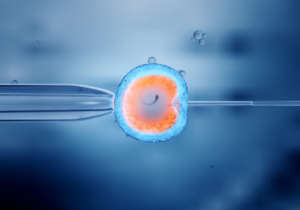Ellen glared at her former daughter-in-law, Lola, and sputtered, “You want to do what?”
“I want to use the sperm Robert stored before he died to conceive a child. I mean, he froze it after he was diagnosed with cancer so we could have children. We never anticipated that he would die. But it’s still sitting there, and I want a child and you want a grandchild. It’s the perfect way to keep a part of Robert with us, even though he is gone.”


Lola waved her hand. “Oh, that’s easy. I’ll apply for survivor benefits under Social Security. Robert was fully vested in the system and I am sure his children will be entitled to something.”
“And what if they aren’t? Have you really thought this through? Having a child is a big responsibility, especially for a single parent. If you fail to qualify for benefits, what then? How will you support your child? You need to check this out with a lawyer.”
“Oh, phooey,” Lola said. “I read all about survivor benefits on the Social Security government website. It says Social Security is designed to protect dependent family members when a wage earner dies. I already collect spousal benefits and the site says minor children get benefits as well. So, if I have Robert’s child, he or she will get benefits. That’s the law.”
Ellen’s eyes narrowed. “At the very least, you need to call Social Security and confirm that. I can’t believe they would provide benefits to a child conceived after the death of the father. That just doesn’t make sense.”
Lola expelled an exasperated sigh. “I’ll check it out, but I know I’m right.”
The Social Security Act of 1939 was created to provide retirement benefits for wage earners who pay into the system long enough to become “insured.” Those insured under the system have the right to start collecting benefits at a certain age or upon disability. The Social Security Act also provides a benefit for dependent family members, including spouses and minor children, upon the death of the wage earner.
The law defines an eligible child as someone who is a minor (under age 18) or not yet graduated from high school, unmarried, and dependent on the wage earner at the time of the wage earner’s death. Someone who was disabled before age 22 also qualifies for child survivor benefits. Under the Social Security Act, no distinction is made between a naturally-born child or one who is adopted.
However, the law also states that in determining whether an applicant is the child or parent of an insured individual, the intestacy laws of state in which the deceased resided apply. Intestacy laws govern the distribution of an estate when someone dies without a will. Generally, legal spouses and children are the first to inherit, but a separate state law dictates who qualifies as a child of the decedent.
In California, a parent-child relationship exists in “posthumous conception” or conception after death only if all of the following are true:
- The decedent consented in writing that his or her genetic material could be used for posthumous conception of his or her child. The document must be signed by the decedent and dated, and it may only be revoked or amended in writing, again signed by the decedent and dated.
- A specific person has been designated by the decedent to legally control the use of the genetic material.
- The person granted control of the use of the genetic material is notified in writing by certified mail that the decedent’s genetic material is available for use in posthumous conception. In addition, notice must be given to anyone granted control over the distribution of the decedent’s property or death benefits within four months of the issuance of the death certificate or a court acknowledgement of the decedent’s death, whichever occurs first.
- The child is in utero (conceived) within two years of the issuance of a death certificate or a court acknowledgement of the decedent’s death, whichever occurs first.
In other words, in California, the decedent must have knowingly granted permission for his or her genetic material to be used to conceive a human life, and conception must occur within two years of death to qualify for Social Security survivor benefits. The law does not apply to a child who shares a decedent’s nuclear genes for the purposes of human cloning.
[Ad] Walnut Creek Area neighbors! The time is now to protect yourself, your family, and the assets you’ve worked so hard for. If you don’t have an estate plan in place or need help updating the one you already have, we can help. California law is our specialty, and we will make sure you and your loved ones are prepared for the future starting now. If you have questions about our services or the content in this blog, please don’t hesitate to contact our team by calling 925.943.2740 or by sending an email to info@absolutetrustcounsel.com. Or, if you’re ready to get started, get your discovery call on the books by visiting our calendar to pick a date and time that works for you. We can’t wait to speak with you.
If you’re someone who needs to include Medi-Cal planning in your estate plan, we can help. For more information on what Medi-Cal planning should look like, visit https://absolutetrustcounsel.com/practice-areas/medi-cal-planning/ for even more resources to help get you started.
